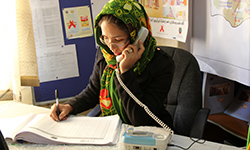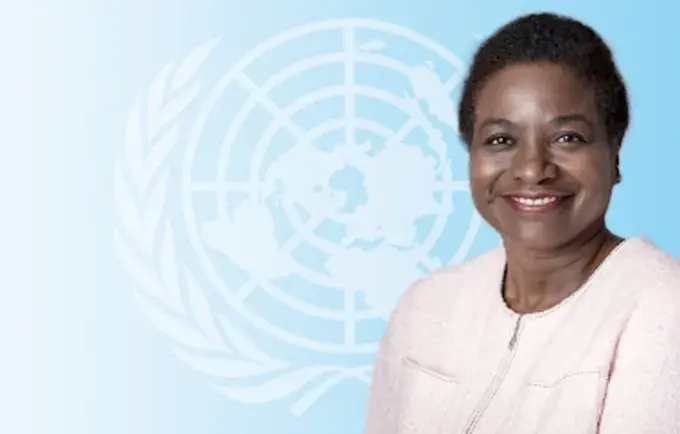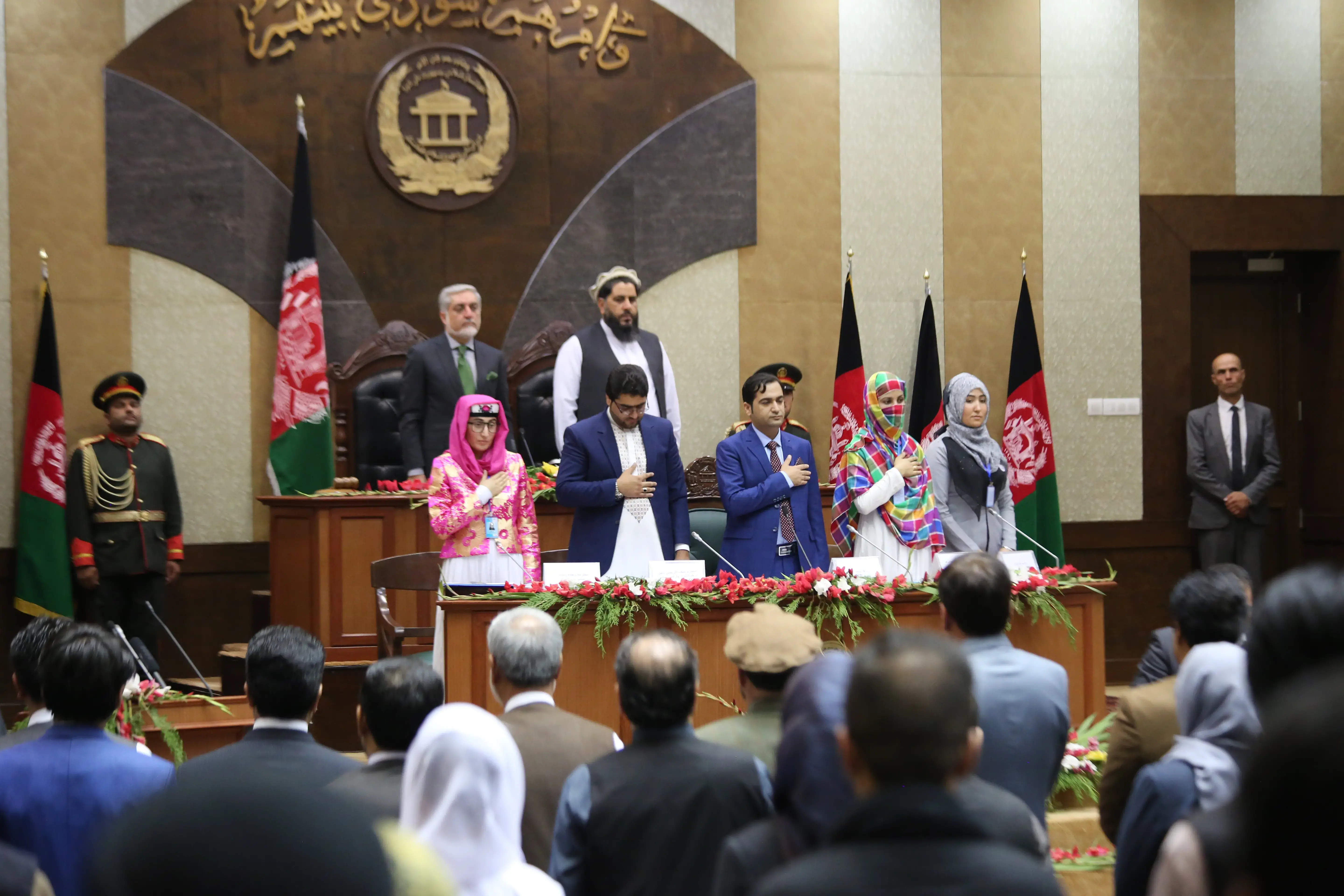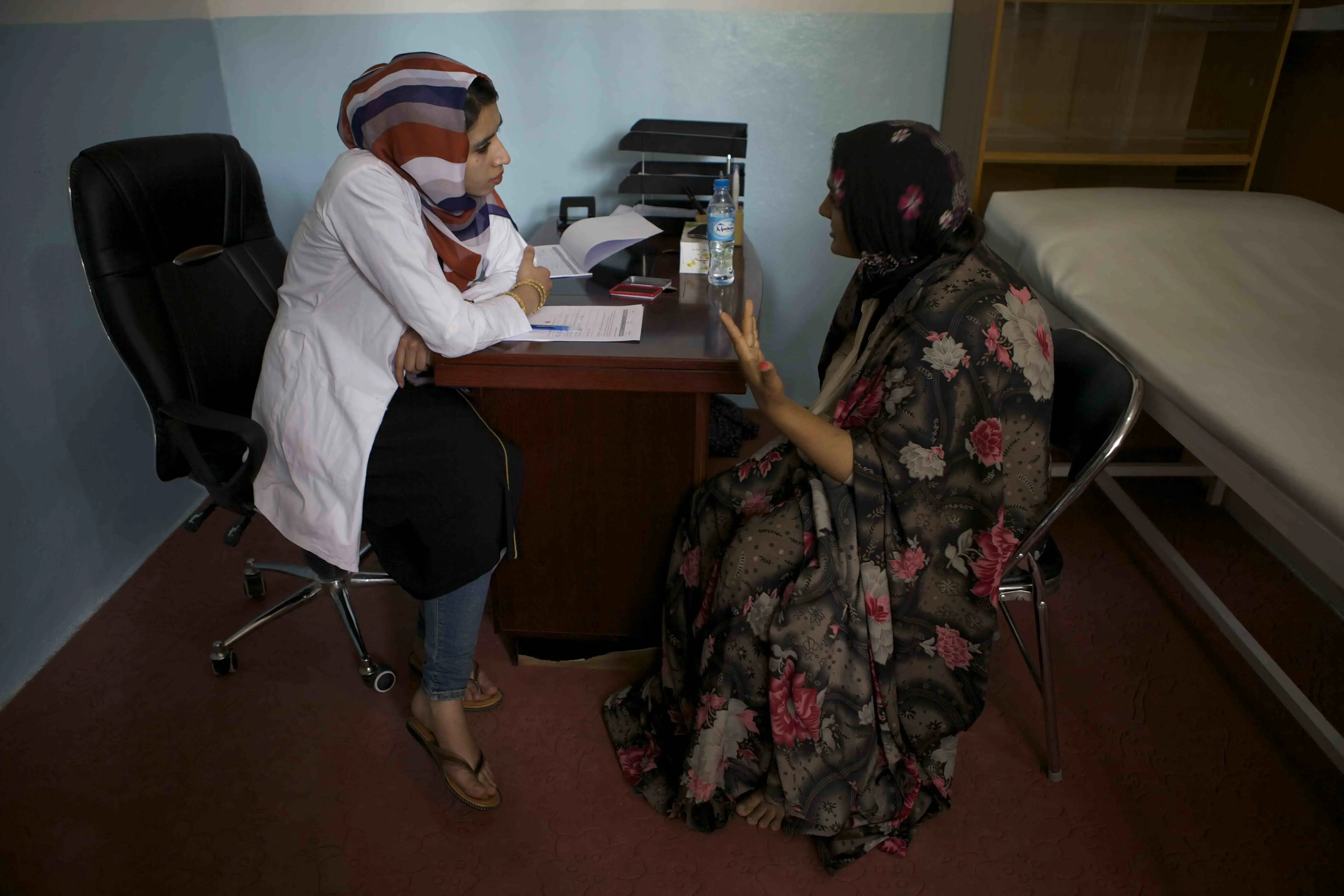"Girls and boys in our society often do not have anyone to turn to for help. However, by calling the Youth Health Line, 120, they can talk to a telephone counselor without being embarrassed or judged." said H.E. Dr. Suraya Dalil, Minister of Public Health.
During the first five month (12 August to 31 December 2012), a total of 7,172 young people consulted counselors through the YHL, of whom 79.3 % were young women and girls and 20.7% young men and boys from different parts of Kabul city. In a country where people highly rely on TV and Radio for getting information and the culture of reading is not very wide spread, it is difficult for youth to get information, particularly information about their reproductive health, especially for girls. Talking to parents about sexual or reproductive health is considered a taboo and in some instances as impolite, which makes it difficult to get any such information.

The Ministry of Public Health, with the financial and technical support of the United Nations Population Fund and its implementing partner, Afghan Family Guidance Association (AFGA), established a phone line to provide youth friendly health counseling.
"Girls and boys in our society often do not have anyone to turn to for help. However, by calling the Youth Health Line, 120, they can talk to a telephone counselor without being embarrassed or judged." said H.E. Dr. Suraya Dalil, Minister of Public Health.
Two counselors, one male and one female follow the Youth Health Line main principles of providing accurate and timely information, as well as an opportunity for dialogue.
Najiba 18 years old come to Youth Health Line Center to talk to the counselor in person. "I had problem with memorizing my lessons and if someone talked to me, while I was studying, I misbehaved and treated them badly. I mean I should be OK to study but also talk to friends and don't offend them. So I came here to seek help from the counselor. " Najiba Said.
"Evidence has shown that comprehensive sexual education that is age-appropriate, gender-sensitive and life skills-based can provide young people with the knowledge, skills and efficacy to make informed decisions about their sexual life. When young people are equipped with accurate and relevant information, and access to counseling and Reproductive Health services that are non-judgmental and affordable, they are better able to take advantage of educational and other opportunities that will impact their lifelong well-being, and also avoid unwanted pregnancies and unsafe abortions, improve their sexual and reproductive health and protect themselves against sexually transmitted infections including HIV" said Dr. Laurent Zessler, UNFPA Representative in Afghanistan.
UNFPA plans to expand Youth Health Line to other major cities of Afghanistan, such as; Herat, Kandahar, Mazar-e Sharif and Jalalabad provinces to cover more youth and provide them information about their sexual reproductive health and other common issues that they are facing in their daily life.




